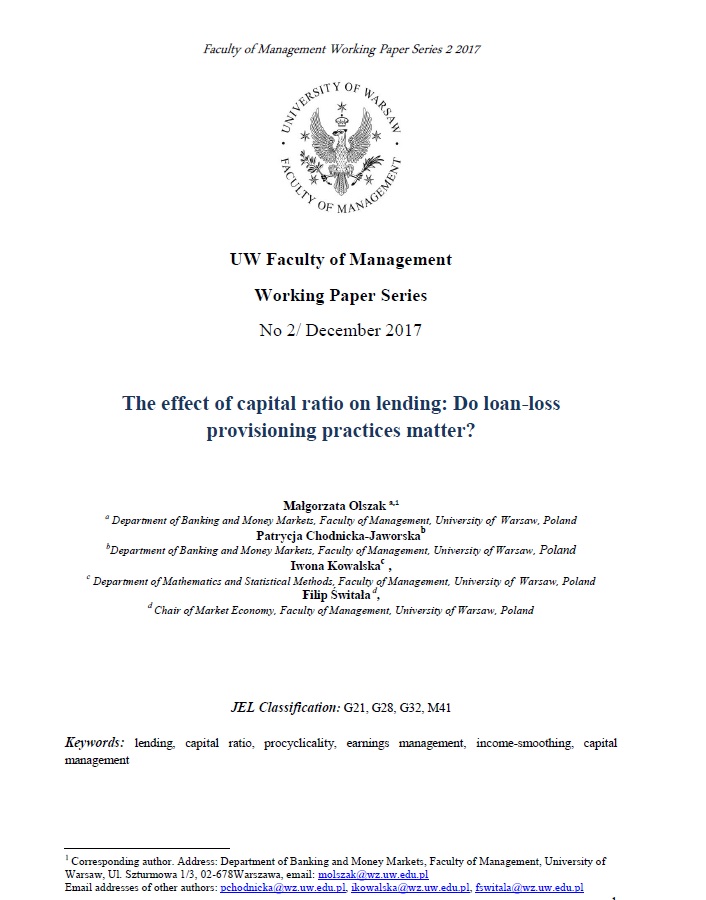
The effect of capital ratio on lending: Do loan-loss provisioning practices matter?
The effect of capital ratio on lending: Do loan-loss provisioning practices matter?
Keywords: lending; capital ratio; procyclicality; earnings management; income-smoothing; capital management
This paper examines the impact of bank capital ratios on bank lending by comparing differences in loan growth to differences in capital ratios at sets of banks that are clustered based on loan-loss provisioning practices. Applying fixed-effects estimator to sample of all commercial banks operating in Poland and using a unique quarterly dataset covering the period of 1999:4-2012:4 we find that loans growth is particularly capital constrained in poorly-capitalized banks, during both non-recessionary and recessionary periods. Lending of banks with low procyclicality of loan-loss provisions (LLP) is not affected by capital ratio in recessionary periods. Low-procyclicality of LLPs does not make poorly- capitalized banks’ lending immune to recessionary capital crunch. In contrast to common view, profit stabilizing practices achieved through income-smoothing do not make banks’ lending resilient to capital constraints during recession, as we find that high income-smoothing banks seem to suffer from increased capital pressures in their lending. This effect is also present in well-capitalized banks. The implication of our research is that decision-makers implementing new accounting standards for loan-loss allowance (the Expected Credit Loss approach) may not be effective in reducing procyclicality of capital regulation, if they will attempt to reduce recessionary capital constraints solely through profit-stabilizing income-smoothing.
More...